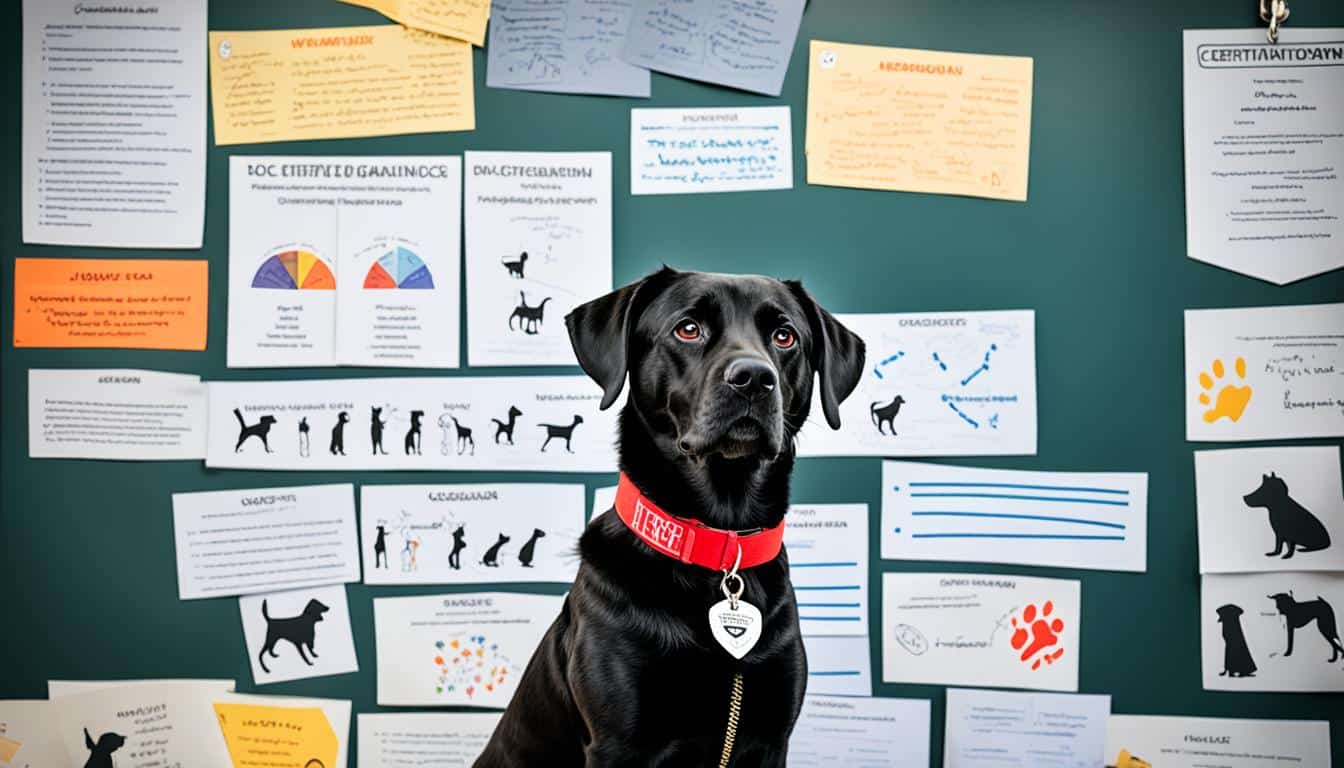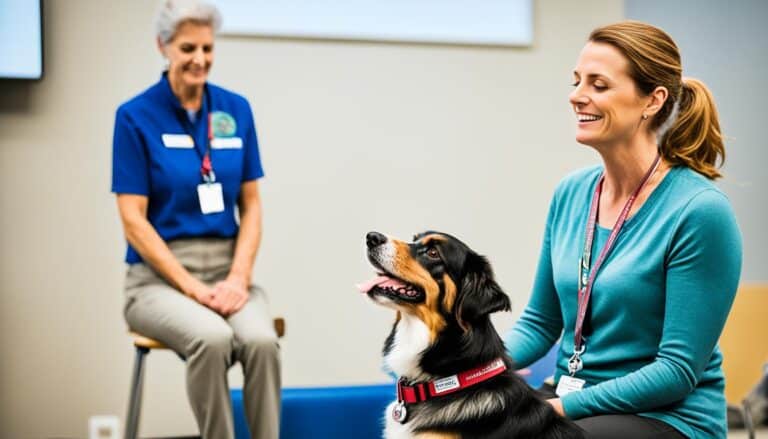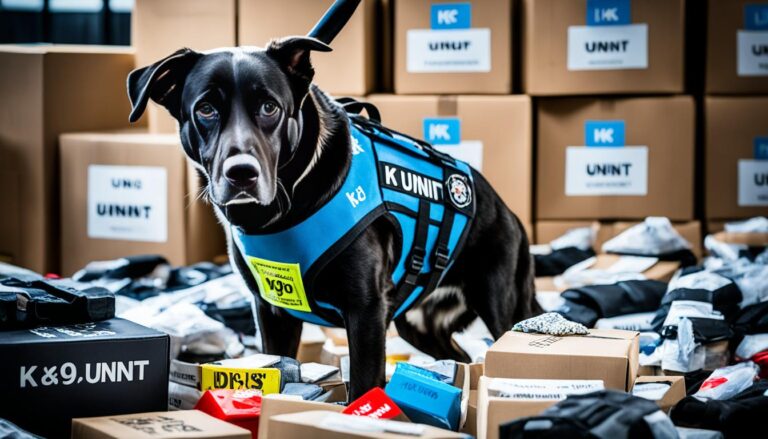How to Become a Certified Dog Trainer
Imagine the joy of wagging tails, wet kisses, and a career dedicated to helping dogs and their owners build lifelong bonds. If you’re passionate about dogs and have dreamt of turning that passion into a profession, becoming a certified dog trainer could be the perfect path for you. Whether you’re starting from scratch or looking to enhance your existing skills, this article will guide you on your journey to becoming a professional dog trainer.
But first, let’s address the burning question—why become certified? Certification not only validates your expertise but also gives you a solid foundation in the science of dog training. It’s the key that unlocks endless opportunities, from working with diverse dogs to earning the trust and confidence of clients. So, if you’re ready to embark on this rewarding adventure, let’s dive in and discover how to become a certified dog trainer.
Train Your Own Dog
The first step in becoming a certified dog trainer is training your own dog. This hands-on experience will not only help you develop your skills but also provide valuable insights into working with different behaviors and personalities. Although your dog doesn’t need to be perfect, focusing on advanced skills beyond basic commands will enhance your abilities as a trainer.
To effectively train your own dog, establish a regular training routine and dedicate time to address any problem behaviors. Consistency is key in reinforcing desired behaviors and correcting unwanted ones. By practicing on your own dog, you can fine-tune your mechanical skills and gain proficiency in various training techniques.
Remember, the goal is not to make your dog flawless, but to develop your training techniques and understanding of canine behavior. This hands-on experience will serve as a strong foundation when assisting future clients with their dogs’ training needs.
Apprentice With Other Dogs
While training your own dog is valuable, it’s important to gain experience with other dogs to broaden your skills and perspectives. Apprenticing with a successful dog trainer or working with dogs that aren’t your own can provide invaluable learning opportunities. Here are some ways you can apprentice with other dogs:
- Ask friends and family if you can train their dogs to gain experience with different breeds and personalities.
- Reach out to local shelters and rescue organizations. Many of them have volunteer programs where you can work with a variety of dogs.
- Find a professional dog trainer who offers apprenticeships or mentorship programs. This allows you to learn from their expertise, receive guidance, and have your techniques monitored.
Working with different dogs will expose you to various training methods and approaches. It will help you develop your skills and adapt your training techniques to suit different dogs’ needs. By apprenticing with other dogs, you’ll gain valuable hands-on experience and enhance your ability to work with a wide range of canine companions.
Train People to Train Their Dogs
As a certified dog trainer, your main role will be teaching clients how to train their own dogs. This requires strong people skills, the ability to motivate clients, shape their abilities, and reinforce their successes.
To effectively teach clients to train their dogs, it’s important to develop your people skills. Building a rapport with your clients, understanding their goals and concerns, and tailoring your training methods to their needs are key aspects of successful dog training.
One way to gain experience in working with human clients is by offering your services to friends, family, or by assisting an experienced trainer with their clients. This hands-on experience will help you refine your communication skills, learn how to adapt your training techniques to different personalities, and address common challenges that clients may face.
Remember, dog training is not just about instructing dogs; it’s about empowering and educating their owners. By teaching clients the necessary skills and knowledge, you not only help improve the behavior of their dogs but also equip them with the tools to maintain and continue the training process.
Developing good people skills and teaching clients how to train their dogs will set you apart as a professional dog trainer. It’s a vital aspect of building a successful career in the field.
Benefits of teaching clients to train their dogs:
- Empowers clients to take an active role in their dog’s training and behavior management
- Strengthens the bond between the client and their dog
- Improves client satisfaction and confidence in handling their dog
- Increases client loyalty and referrals
- Enhances the overall training experience for both the client and their dog
By focusing on teaching clients how to train their dogs, you not only create a more positive and enjoyable training experience but also empower dog owners to become capable trainers themselves. Invest in developing your people skills to become a well-rounded and effective dog trainer.
Educate Yourself
To become a certified dog trainer, it’s crucial to educate yourself in the science of animal behavior and learning. Understanding the principles behind different training techniques and problem-solving methods will enhance your skills as a trainer. Luckily, there are plenty of resources available to help you on your educational journey.
One excellent option is to enroll in dog training courses offered by reputable organizations like the Karen Pryor Academy. These courses provide in-depth knowledge and practical skills that align with scientifically sound practices. You’ll learn from experienced trainers and gain valuable insights into effective training methods.
Another valuable resource for aspiring dog trainers is webinars. These online seminars cover a wide range of topics and are often hosted by industry experts. They provide a convenient way to access valuable information and stay up to date with the latest research and techniques.
When seeking out educational resources, it’s important to ensure that the teachings align with scientifically sound practices. The Certification Council for Professional Dog Trainers provides a list of recommended resources that you can explore to further your education and enhance your skills.
Why Educating Yourself is Vital
Continuously educating yourself in the field of dog training is essential for several reasons. First, it allows you to stay updated with the latest advancements and research in the industry. This knowledge will help you refine your techniques and provide the most effective training for your clients’ dogs.
Second, investing in your education demonstrates your commitment to the profession and your dedication to providing the best possible training for dogs and their owners. Clients are more likely to trust and choose a trainer who has taken the time to expand their knowledge and skills.
Lastly, ongoing education fosters personal and professional growth. It keeps you motivated and passionate about your role as a dog trainer, allowing you to continuously evolve and improve your training methods.

Educate yourself with dog training courses to enhance your skills as a dog trainer.
By investing in your education and staying current with the latest research and techniques, you’ll position yourself as a knowledgeable and competent dog trainer. This will not only benefit your clients but also contribute to the professionalization of the dog training industry.
Becoming A Certified Dog Trainer
Once you have gained experience with dogs and people, and have completed the necessary courses and education, it’s time to become a certified dog trainer. Joining professional organizations like the Association of Professional Dog Trainers shows your commitment to the profession and gives you access to valuable information and courses.
Consider obtaining certification, such as the Certified Professional Dog Trainer – Knowledge Assessed (CPDT-KA) certification. This certification requires a minimum of 300 hours of dog training experience and passing a multiple-choice exam to demonstrate your knowledge and skills.
Why Become Certified?
Becoming a certified dog trainer offers numerous benefits that can greatly enhance your career and set you apart from the competition. Certification not only provides personal satisfaction but also validates your knowledge and skills in science-based dog training. It demonstrates your commitment to excellence and professionalism in the field.

Stay Current and Motivated
Obtaining dog training certification ensures that you stay up-to-date with the latest techniques, methods, and advancements in the field. Continuing education is often required to maintain certification, which encourages lifelong learning and keeps you at the forefront of industry developments.
Gain a Marketing Edge
Clients and prospects are more likely to trust and choose certified dog trainers. Certification provides clients with assurance that you have met certain standards of knowledge and expertise. It gives you a competitive advantage by establishing your credibility and professionalism.
Professionalize the Field
By obtaining certification, you contribute to the professionalization of the dog training industry. Certification programs establish recognized standards and qualifications for trainers, elevating the overall reputation of the profession. It helps foster a sense of trust and confidence among clients, leading to a greater appreciation for the value of professional dog training.
Whether you’re just starting your career or looking to take your existing business to the next level, becoming a certified dog trainer is a crucial step. Certification not only benefits you personally but also enhances your marketability and professional standing in the industry.
Dog Trainer Programs
If you’re passionate about becoming a certified dog trainer, Dog Trainer College offers comprehensive training programs that will equip you with the knowledge, skills, and certification you need to excel in this rewarding profession. These programs cover a wide range of dog training techniques, from basic obedience to specialized areas such as scent tracking, police service training, and service dog training.
At Dog Trainer College, our courses provide a combination of theoretical instruction, practical coursework, and hands-on experience to ensure that our students receive a well-rounded education. We believe in the importance of gaining real-world experience, so our programs offer opportunities to work with a variety of dogs in different training scenarios.
Upon completion of the program, you’ll be equipped with the knowledge and skills necessary to become a knowledgeable and certified dog trainer. Graduates of our programs can choose to start their own dog training business or work for local organizations that specialize in dog training and behavior modification.
Don’t miss the chance to turn your passion for dogs into a fulfilling career. Enroll in one of our dog trainer programs today and take the first step towards becoming a certified dog trainer!
Developing Dog Training Skills
As a certified dog trainer, it’s important to develop specialized training skills in various areas of dog training. Each type of training requires specific techniques to target different abilities and behaviors. By expanding your repertoire of training skills, you can provide comprehensive and effective training solutions to your clients.
Obedience Training
Obedience training is a fundamental aspect of dog training. It focuses on teaching dogs basic and advanced commands, such as sit, stay, or come. These commands enhance a dog’s behavior and promote their overall obedience. Utilize positive reinforcement techniques, such as treats and praise, to motivate and reinforce desired behaviors.
Scent Tracking Training
Scent tracking training is a specialized area that trains dogs to use their sense of smell to detect specific substances like drugs or cadavers. It involves teaching dogs to follow scent trails and locate hidden items. Scent tracking requires patience, precision, and the ability to gradually increase the difficulty of scent trails.
Police Dog Training and Protection Training
Police dog training and protection training are advanced training programs that harness a dog’s protective instincts and athleticism. These specialized skills are utilized in law enforcement or personal protection purposes. It involves teaching dogs to apprehend suspects, perform agility exercises, and protect their handlers on command. Building trust and strong bonds between the dog and trainer are crucial in these types of training.
By developing your skills in these specialized areas of dog training, you can set yourself apart as a certified dog trainer. Remember to continually educate yourself on the latest dog training techniques, stay updated with industry advancements, and adapt your training methods to meet the needs of your clients and their dogs.
Time to Recertify?
Once you have obtained certification as a dog trainer, it’s important to remember that recertification is necessary every few years. This ensures that you stay current with industry standards and the advances in dog training techniques. Maintaining your certification demonstrates your commitment to professional development and upholding the highest level of competency as a certified dog trainer.
Recertification can be achieved through two methods:
- Accumulating Continuing Education Units (CEUs): Participate in relevant workshops, seminars, webinars, or courses to earn the required number of CEUs. These educational experiences will enhance your knowledge and skills, keeping you up-to-date with the latest trends in dog training.
- Retaking the Certification Exam: Take the recertification exam to reassess your knowledge and ensure you meet the current certification criteria. This allows you to demonstrate your continued expertise in dog training and maintain your professional standing.
By pursuing recertification, you not only stay on top of industry developments but also reinforce your commitment to providing top-quality training to your canine clients. It’s an opportunity to further refine your skills and showcase your dedication to the field of professional dog training.
Why is Recertification Important?
Recertification is important for several reasons:
- Stay Current: Dog training techniques and methodologies are constantly evolving. Recertification ensures that you are aware of the latest industry standards, research findings, and best practices. This knowledge allows you to provide the most effective and up-to-date training methods to your clients.
- Professional Development: Continuing education and recertification provide opportunities for personal growth and professional development. By staying informed about advancements in the field, you can expand your skill set and offer a wider range of services to your clients.
- Client Confidence: Maintaining your certification demonstrates your commitment to excellence, which can instill confidence in your clients. They are more likely to trust and choose a certified dog trainer who has taken the time to stay current and uphold industry standards.
Recertification is an ongoing process that highlights your dedication to the profession and ensures you provide the best possible training for dogs and their owners. It’s an investment in your career and a testament to your passion for helping dogs live happy, well-behaved lives.
Trainer Spotlight
Discover the success stories and testimonials from certified dog trainers who have experienced the incredible benefits of certification. Their journeys highlight the personal growth, continuous learning, and professional recognition that come with obtaining certification.
Certification offers a sense of personal fulfillment and accomplishment. As a certified dog trainer, you gain the confidence and expertise to tackle any training challenge with ease. It demonstrates your dedication to your craft and showcases your commitment to providing exceptional service to your clients.
Furthermore, certification opens doors to a world of continuous learning. By staying up-to-date with the latest research and techniques, you can offer cutting-edge training methods to your clients. This ongoing education ensures that you are equipped with the knowledge and skills to deliver effective results and resolve any behavioral issues.
The professional recognition that comes with certification is invaluable. Potential clients are more likely to trust and choose a certified dog trainer. Your credentials set you apart from the competition, giving you a competitive edge in the industry. Certification not only solidifies your reputation as a skilled professional but also establishes the high standards and qualifications you uphold.






